A lot has been written about the Irish in the US. Even more’s been written about the American Civil War (or Civil War 1.0 as we call it around here.) Writer Ellen Alden has a documented family history that includes both topics, and it drives her work, especially her novel, “Yours Faithfully, Florence Burke.”
So what’s the Ellen Alden story?
My name is Ellen Alden and four years ago I was living a “normal” life. I was teaching fourth grade, playing on a tennis team and raising my three children, two dogs and a hedgehog. Then one fateful day my daughter asked if I had a photo of myself when I was a little girl and it prompted me to sift through old cardboard boxes that my parents had left in my attic years ago. It is then that I made the fortunate discovery of 19 Civil War letters from my great great grandfather, Irish Immigrant, Florence Burke. He was writing to his wife and children back home in West Springfield, MA.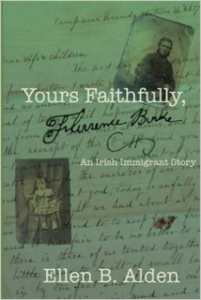
After reading these letters I became inspired to tell their extraordinary story and to stop everything and research, travel and discover my geneaology. I worked tirelessly to trace their past and to bring their story to life. I discovered that to be a writer, all I really needed is passion and creativity. I am now working on two new novels.
An understandable, if a tad robust, reaction. So what’s the book about?
My book is about my the life of my first generation Irish immigrant ancestors. It is based on the original 19 Civil War letters I found in my attic. It begins with my great, great grandfather signing a legal contract to join the Civil War as a “substitute” for a wealthy man who was drafted in exchange for a small parcel of land for his family. Florence Burke is 35 years old, happily married and a father of three. It then replays back to his past in Ireland during the Potato Famine, and gives the horrific account of the suffering from both the perspectives of Florence and his love interest Ellen.
At 19 Florence decided to flee Ireland, chasing both his true love and his chance at a better life. But, his family believes he is a traitor. Once in America Florence and Ellen reunite and settle on a farm (as tenant farmers) in West Springfield, Ma. They are very poor and can’t seem to get ahead—and the town councilmen are less than sympathetic to the new Irish Immigrants. In 1864 Florence makes the decision to join the war (without the knowledge or consent of his wife). He knows it is a great gamble, but he feels it could be the last chance to attain land and raise his family out of poverty.
From this point on the perspective of the story is only told by Ellen who is at home with the children. Ellen struggles to prep the new farm, to keep her children warm and safe through the cruel winter and to support her embattled husband, all while secretly holding a grudge that he made this deal without her knowledge. The reader hears from Florence only through his letters—and I used my great, great grandfather’s words 85-90% verbatim. Yours Faithfully, Florence Burke is a book about the sacrifices that the first generation Irish immigrants made in order to survive in America. It is also about the extraordinary love that a father has for his family. I hope you like it!

Obviously there’s the genetic connection, but why is this period so fascinating to you?
I believe the Potato Famine is an understudied time in history. The Irish don’t like talking about it, the English choose to deny it, and most other nations over look it. As For the Civil War, it is monumental. To have our nation so torn apart that we fight our own countrymen and enlist immigrants form other countries to fight for one side (even though they have no great loyalty to either side) exemplifies the desperation and makes this an extraordinary time period in history.
I was lucky enough to find the letters, a window into the past, a first hand account of the battles from an Irish immigrant placed on the front lines. His letters describe unbelievable battles, his feeling of guilt at having made the deal without telling his family, and his longing to come home and reunite with his beloved family. I didn’t choose these time periods; they were already chosen. I just brought them to life.
Writers and pre-destination is probably an argument for another time and a different beverage. What’s your favorite scene in the book?
My favorite scene is set on the farm in March,1864. Florence has gone to war and Ellen’s sister Mary arrives to help her with the children. One evening the oldest son Jerry notices a stranger lurking around the barn, potentially trying to steal the hay or farm animals. He runs to warn his family in the farmhouse and it is the old Aunt Mary who saves the day with her archery skills (which no-one knew she possessed). It’s a great moment in the story when the two women realize they are fighting their own battle on the home front—and they are winning.
Where can people learn more and get the book?
My website and blog www.ellenalden.com
Facebook: www.facebook.com/ellenaldenauthor/
Twitter @ellen_alden
You can get the book on Amazon or Barnes and Noble
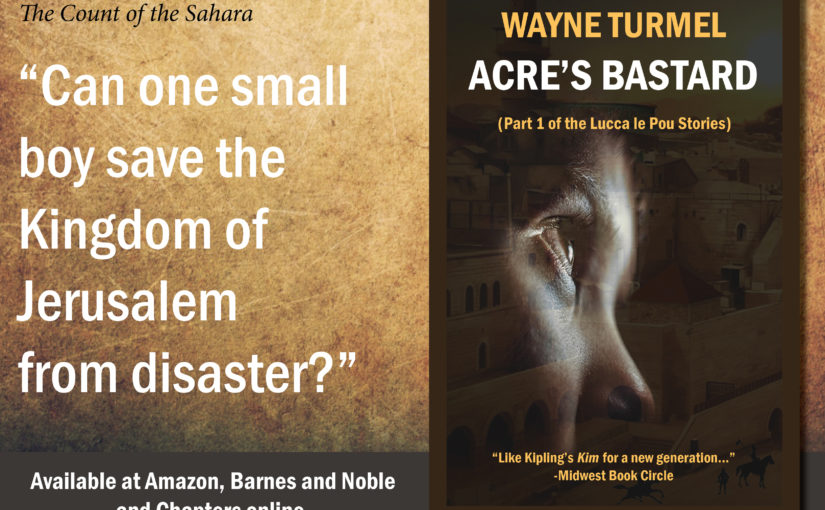
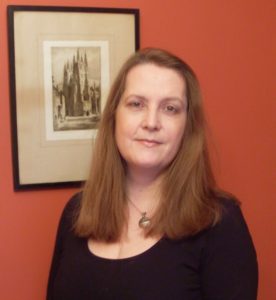 FIFTH KNIGHT have been #1 Amazon bestsellers and a Bild bestseller in Germany. Book #3 in the series, THE LORD OF IRELAND, was released in 2016. Born and raised in the Republic of Ireland into the family of Michael Collins (the legendary revolutionary and founder of the Irish Free State), she now lives in northwest England with her husband, daughter and a Facebook-friendly dog. She is also a contributing editor to International Thriller Writers The Big Thrill magazine, blogs for English Historical Fiction Authors and is the social media manager for the Historical Novel Society. Find out more by visiting
FIFTH KNIGHT have been #1 Amazon bestsellers and a Bild bestseller in Germany. Book #3 in the series, THE LORD OF IRELAND, was released in 2016. Born and raised in the Republic of Ireland into the family of Michael Collins (the legendary revolutionary and founder of the Irish Free State), she now lives in northwest England with her husband, daughter and a Facebook-friendly dog. She is also a contributing editor to International Thriller Writers The Big Thrill magazine, blogs for English Historical Fiction Authors and is the social media manager for the Historical Novel Society. Find out more by visiting 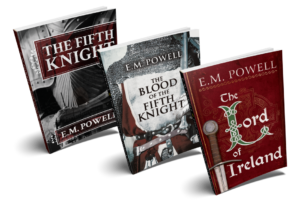 Tell me about writing the book as a serial story first, then turning it into a novel. How did that impact how you put it all together?
Tell me about writing the book as a serial story first, then turning it into a novel. How did that impact how you put it all together?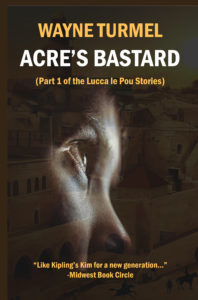 It’s January 17, 2016 so my newest historical fiction novel, Acre’s Bastard, is now available worldwide in paperback and ebook, wherever you buy such things.
It’s January 17, 2016 so my newest historical fiction novel, Acre’s Bastard, is now available worldwide in paperback and ebook, wherever you buy such things. and a writer, mainly of Anglo-Saxon stories. I’m a nomad who genuinely can’t say where I’m ‘from’. I have two birth certificates, which I believe is quite rare. I’m vibrant, witty and smiley – when I’m tucked away behind the safety of my keyboard. In real life there’s less elegance and sophistication, which is perhaps no bad thing as I live in the English Lake District where I walk, a lot, and where it rains, a lot. History, writing and music are my passions, and I’m lucky to be able to indulge all three – the last of which involves my regularly making a fool of myself as I teach small children the art of music, singing, and what I like to call ‘leaping about’ – and yes, ‘leaping about’ is a technical term…
and a writer, mainly of Anglo-Saxon stories. I’m a nomad who genuinely can’t say where I’m ‘from’. I have two birth certificates, which I believe is quite rare. I’m vibrant, witty and smiley – when I’m tucked away behind the safety of my keyboard. In real life there’s less elegance and sophistication, which is perhaps no bad thing as I live in the English Lake District where I walk, a lot, and where it rains, a lot. History, writing and music are my passions, and I’m lucky to be able to indulge all three – the last of which involves my regularly making a fool of myself as I teach small children the art of music, singing, and what I like to call ‘leaping about’ – and yes, ‘leaping about’ is a technical term…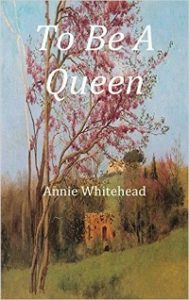
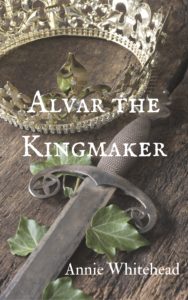
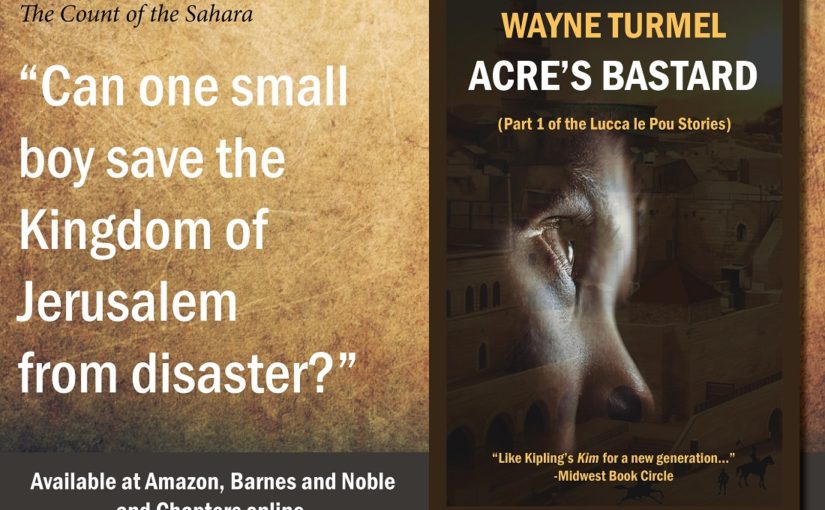

 As a new member of the
As a new member of the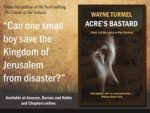
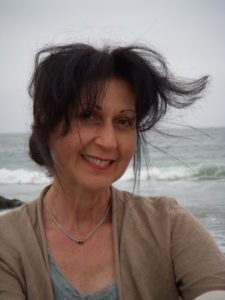 I have been in academia all my professional life. I was a Professor of English for about 18 years. I introduced several new courses to the college curriculum, including Introduction to Women’s Studies, Women in Literature, and Women in Religion. I moved to the “dark side” of academia when I became an administrator. I was Dean of Humanities and Fine Arts for a few years and then the Vice President for Academic Affairs for several years before my retirement in July 2013.
I have been in academia all my professional life. I was a Professor of English for about 18 years. I introduced several new courses to the college curriculum, including Introduction to Women’s Studies, Women in Literature, and Women in Religion. I moved to the “dark side” of academia when I became an administrator. I was Dean of Humanities and Fine Arts for a few years and then the Vice President for Academic Affairs for several years before my retirement in July 2013.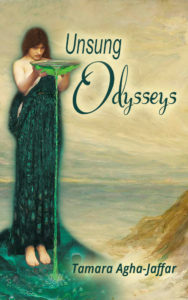 That’s a cool take. What inspired your approach?
That’s a cool take. What inspired your approach?